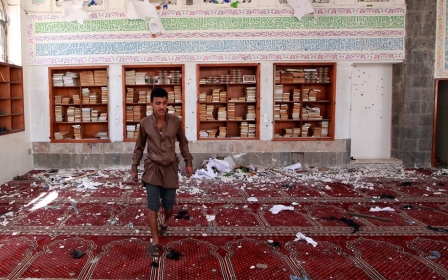Al-Qaeda leader in Yemen captured alive, UN report confirms

A United Nations report has confirmed for the first time that the leader of al-Qaeda's affiliate in Yemen has been under arrest for several months.
Khalid Batarfi, leader of al-Qaeda in the Arabian Peninsula (AQAP), was arrested by Yemeni security forces in the al-Mahrah Governorate and then handed over to Saudi Arabia.
His second in command, Saad bin Atef al-Awlaqi, died during an "operation in Ghayda City in al-Mahrah in October", according to the UN report.
Batarfi's arrest was confirmed in a report disclosed to the United Nations Security Council by UN monitors tracking the global threat from Islamist militants.
Born in Riyadh, Batarfi became leader of AQAP in early 2020, after his predecessor was killed by a US air strike.
Prior to joining AQAP, Batarfi trained with al-Qaeda in Afghanistan before 9/11. He later became a key ideologue for the group and helped oversee its external operations, before becoming its leader.
He is the most senior al-Qaeda leader to be captured alive since Osama bin Laden founded the group 30 years ago.
AQAP has yet to confirm or acknowledge Batarfi's arrest. But his capture will prove another blow to the group.
"In addition to leadership losses, AQAP is suffering an erosion of its ranks caused by dissensions and desertions," and was forced to disperse from Al Bayda Governorate after a significant military defeat, the UN report states.
Last February, the US government announced that Batarfi's predecessor, Qassim al-Rimi, was killed in an air strike in Yemen. This followed a deadly shooting in December 2019 at Naval Air Station Pensacola, Florida by a Saudi air force officer who, according to the US Justice Department, was working with AQAP.
Middle East Eye propose une couverture et une analyse indépendantes et incomparables du Moyen-Orient, de l’Afrique du Nord et d’autres régions du monde. Pour en savoir plus sur la reprise de ce contenu et les frais qui s’appliquent, veuillez remplir ce formulaire [en anglais]. Pour en savoir plus sur MEE, cliquez ici [en anglais].




